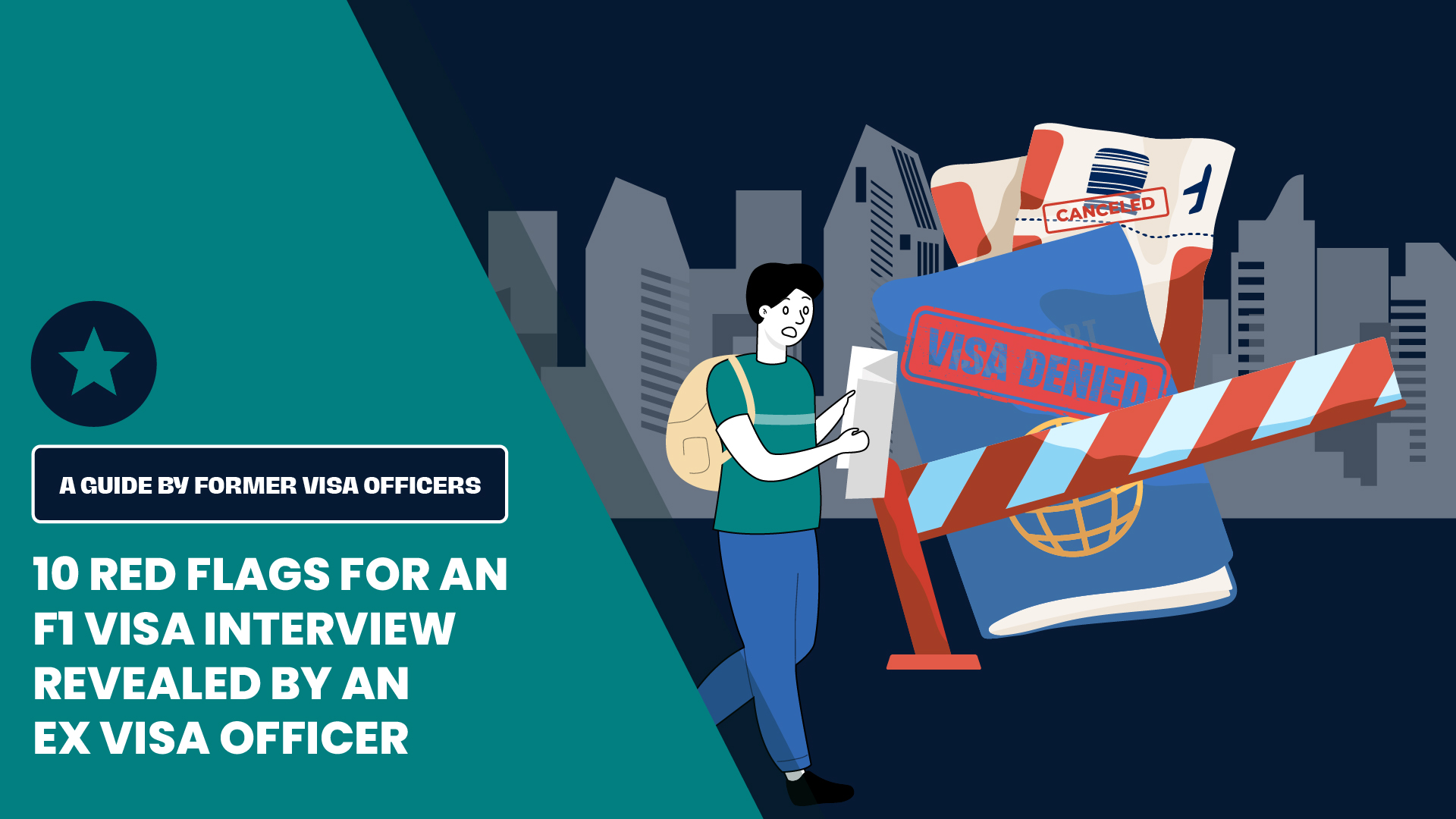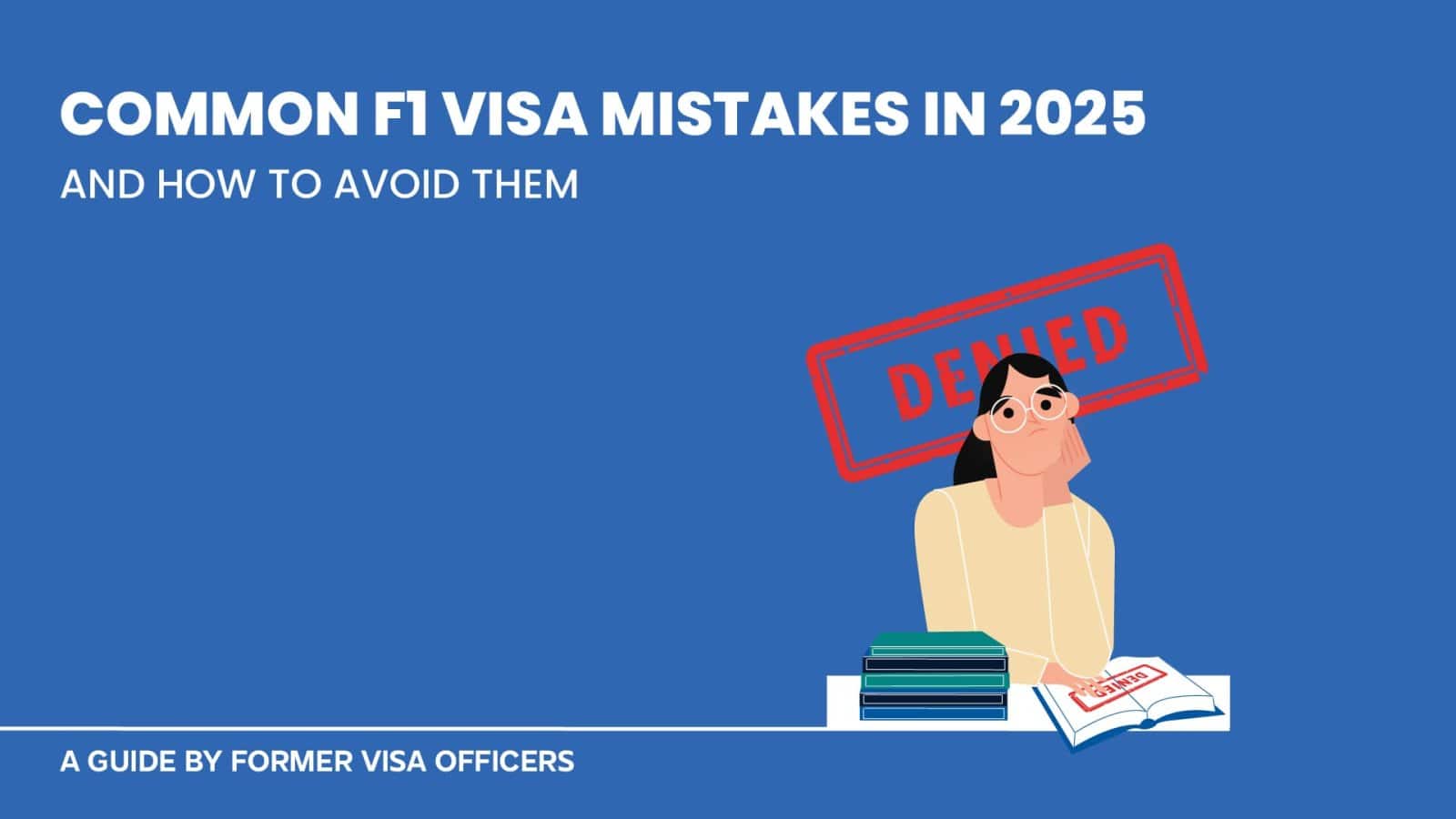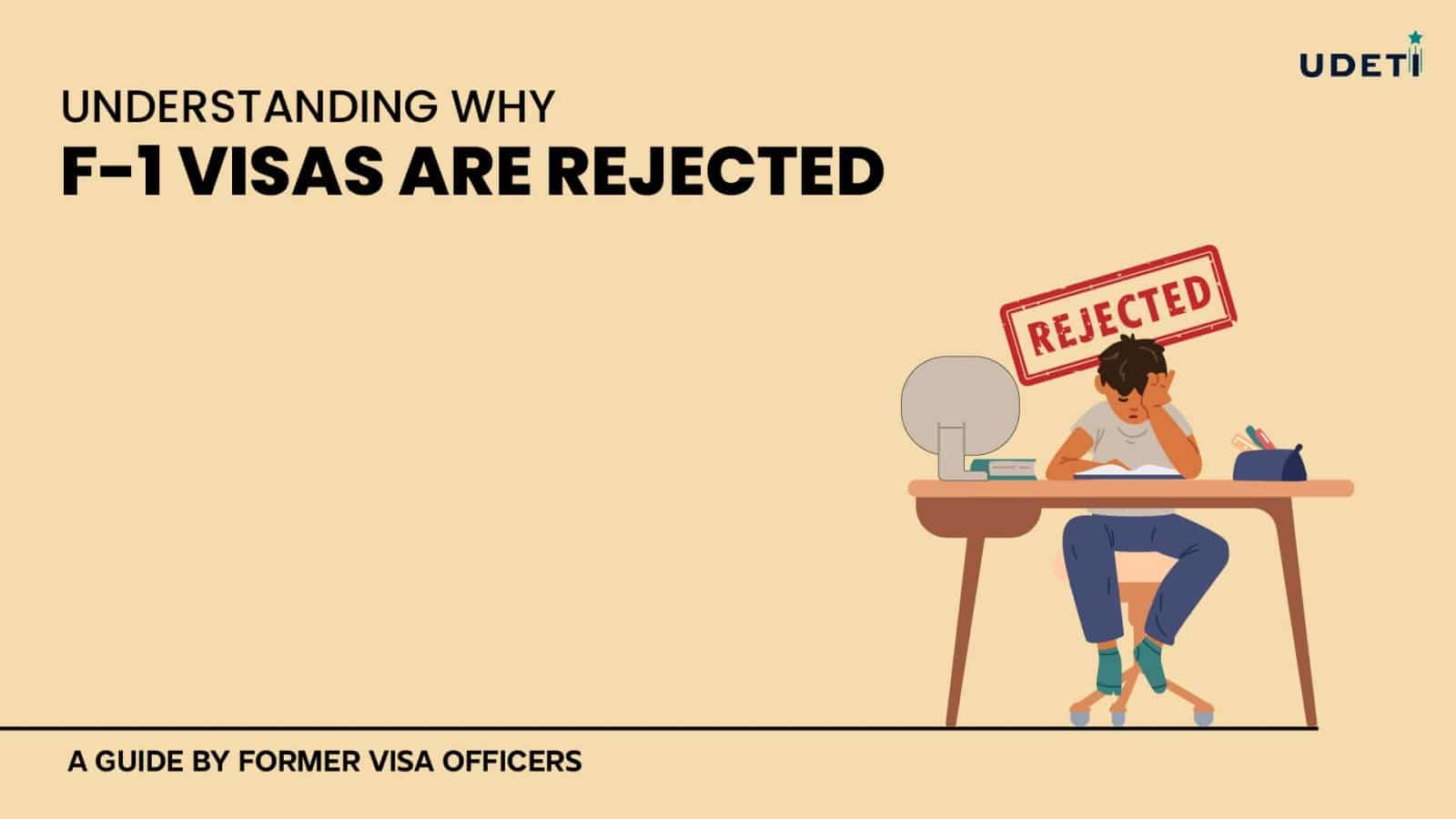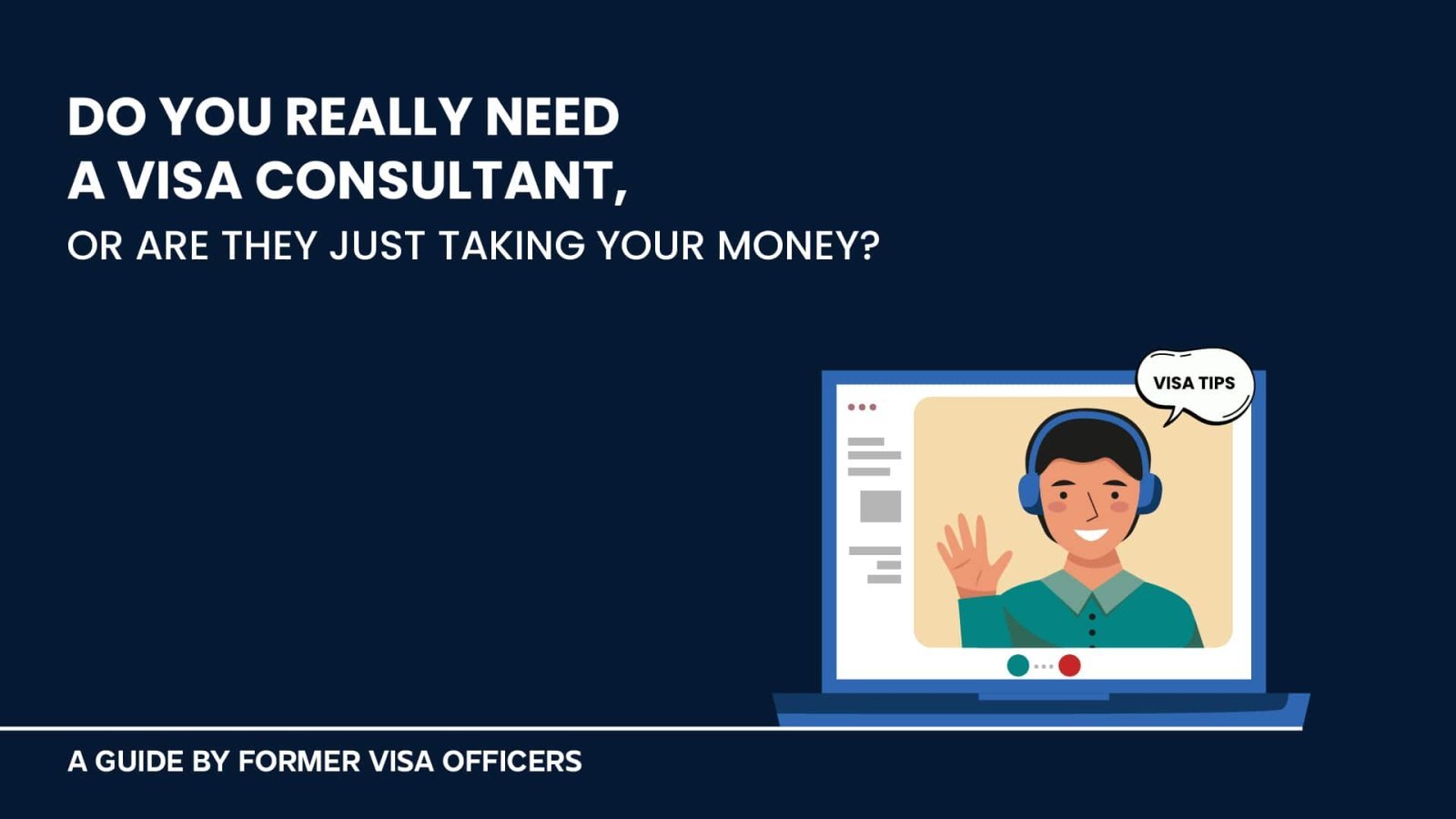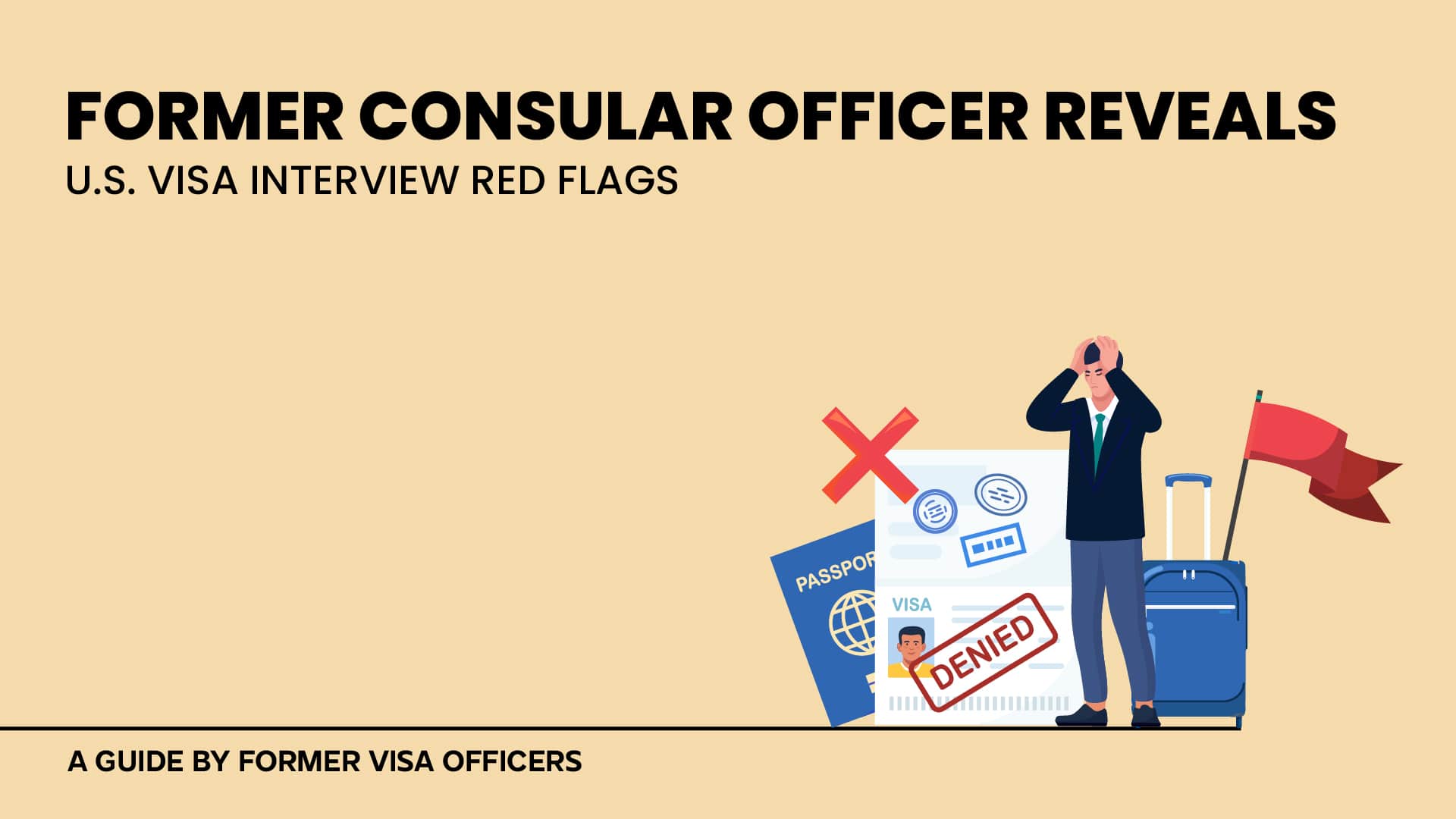Hi everyone! My name is Yvette, and as a former Consular Officer with the U.S. Department of State, I’ve seen it all when it comes to F1 visa interviews.
Today, I’m here to share the top 10 red flags that might make a Consular Officer doubt whether someone qualifies for a visa. Let’s dive right in!
10 Red Flags for an F1 Visa Interview
1. Struggling to Explain Why You Chose the U.S. and Your Program
Probably the single biggest red flag is when an applicant can’t clearly explain why they’ve decided to study in the United States or why they picked their school or program. Consular Officers know that studying in the U.S. is expensive and far from home, so they expect applicants to have a solid reason. If you’re struggling to explain this, it’s going to raise questions about whether you truly intend to be a student.
2. Inconsistent Applications
This one’s tricky. If you’ve been refused a visa and then reapplied with a completely different school or program after a short time, that may be confusing. Officers might wonder why you made such a big change so quickly. If you are considering making a switch, make sure you can justify your motivation.
3. Not Knowing the Financial Details
We all know college in the U.S. is expensive. Consular Officers expect you to know the financial side of things—not just tuition, but also living expenses for the entire length of your program. Even if it’s not common in your culture to discuss finances openly, this is one area you need to be prepared for.
4. Vague or Generic Answers
Let’s say I asked, “Why did you choose this university?” and you said, “I saw it on the internet and it looked nice.” That’s not going to cut it. Officers are looking for detailed, thoughtful answers. Generic responses make them wonder if you’re being genuine.
5. Being Dishonest About Family in the U.S.
Here’s a big one: don’t lie about having family in the U.S. I’ve seen advice floating around telling people to hide this information, but Consular Officers can often find out. If they catch you being dishonest, they’ll question everything else you’ve said.
You can prepare for your visa interview by checking F1 Visa Interview Questions and Ex-Visa Officer Answers.
6. Limited English Proficiency
Most U.S. universities require English exams, but that doesn’t mean you’ll be fluent. Officers understand nerves can play a role, but if you’re really struggling to understand questions or give clear answers, it might raise concerns about whether you can handle coursework in English.
7. Behaviors That Don’t Align with Cultural Norms
Here’s an example: if you’re an unmarried young woman from a country where it’s uncommon to live away from your parents, but you’re planning to move 5,000 miles to the U.S. alone, that might raise questions. You’ll need to explain your situation in a way that makes sense. In some countries, this move is normal. The point is that cultural norms are taken into consideration during the visa window.
8. Forum Shopping
If you’ve been refused a visa in your home country and then apply in another country, that can be a red flag. While there are legitimate reasons to do this, like scheduling constraints, officers will see your previous applications and may wonder if you’re trying to game the system. After a denial, it is safer to try for the visa again in your home country. Learn more here: What to do if Your F-1 Student Visa is Rejected
9. Deceptive Behavior
Even small lies can snowball into big issues. If you’re caught being deceptive about something minor, officers will start to question the rest of your story. Honesty is always the best policy.
10. Not Having a Clear Story
At the end of the day, your story needs to make sense. Every applicant’s situation is unique, but it should all fit together logically. If something about your plans seems off, it’s up to you to explain why it makes sense for your case.
Final Thoughts
My best advice? Take the time to really think about why you want to study in the U.S., how you plan to make it happen, and what you’ll do with that education. Be honest, be prepared for the visa interview, and communicate confidently in your best English. If you do that, you’ll have a much better chance of success.
Good luck with your F1 visa journey!
Watch Our Video, Red Flags for an F1 Visa Interview:
https://www.youtube.com/watch?v=fCa43YEBo4Q
DISCLAIMER:
This blog does not endorse or advocate for any illegal activities. All content presented here is intended for educational purposes only. The viewpoints expressed do not constitute legal advice and are solely based on the writer’s opinions and experiences. Please use the information provided responsibly. Any advice given is of a general nature and should be applied to your specific circumstances with caution and consideration.
Copyright © 2025 UDETI LLC. All rights reserved.

